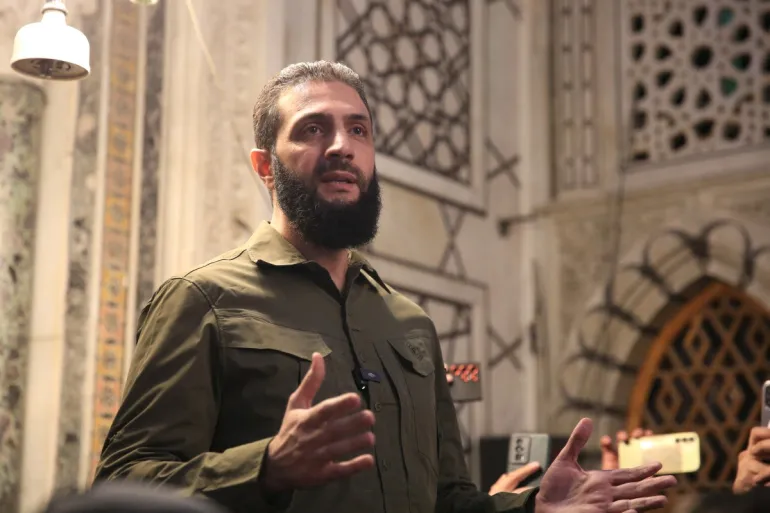Six months into Abu Muhammad al-Julani’s rule following Bashar al-Assad’s December 2024 ouster, Israeli security analyst Yoni Ben Menachem warns the new Syrian regime faces existential threats from internal chaos and structural instability.
In a recent analysis published on his platform, Ben Menachem noted: “Despite Julani’s diplomatic overtures to the West, his government struggles with fundamental governance challenges – particularly internal factionalism and the destabilizing presence of foreign militants within his power structure.”
The analyst described Julani’s unlikely ascension as “one of the most remarkable developments in modern Syrian history” – a former leader of the extremist Hay’at Tahrir al-Sham now attempting to govern a fractured nation.
Current challenges include:
– Deepening sectarian divides between Alawite, Druze, and Sunni communities
– Ongoing tensions with Kurdish autonomy demands
– Economic crisis exacerbated by years of conflict
– The unresolved status of former jihadist fighters
Julani’s planned September address to the UN General Assembly – which would mark the first U.S. visit by a Syrian leader in 60 years – signals Damascus’s rehabilitation in Western circles. This follows significant policy shifts:
U.S. military footprint reduced to single base
Sanctions gradually being lifted
New diplomatic engagement under envoy Thomas Bruck
However, Ben Menachem cautions that “historical grievances, particularly among minorities who suffered under Julani’s former militant operations, continue to undermine national reconciliation efforts.”
The situation remains precarious, with U.S. Secretary of State Marco Rubio recently warning Congress that Syria stands “weeks away from renewed civil war.” Critical unresolved issues include:
• Integration of former militants into state security forces
• Central government vs. regional autonomy demands
• Constitutional reform deadlock
While Julani has implemented measures like mandatory military academy training for faction leaders, analysts question whether these steps can stabilize a nation still reeling from decades of conflict. The coming months will test whether this unconventional transition from militant leader to statesman can succeed against Syria’s complex web of challenges.

